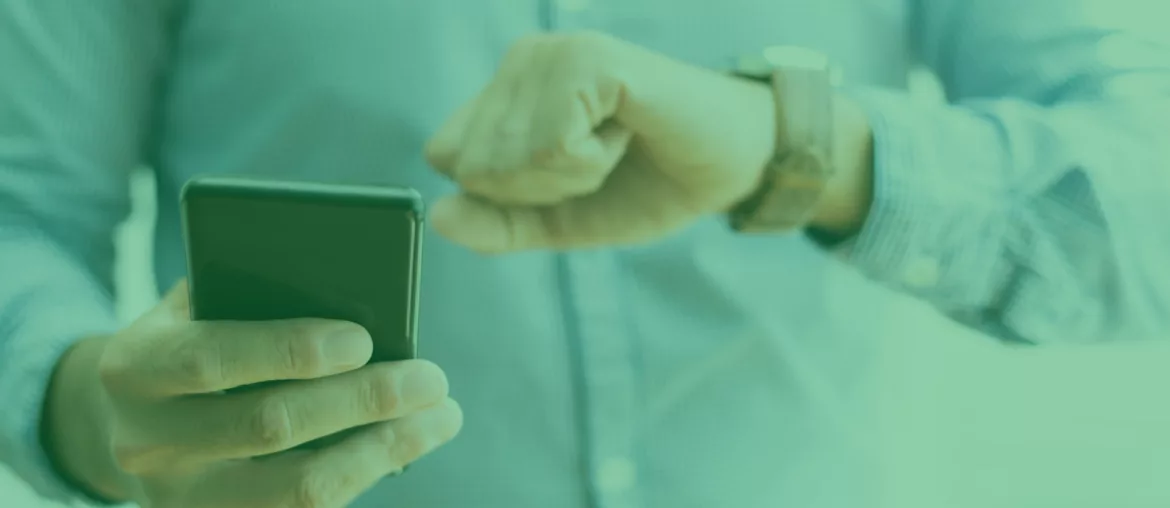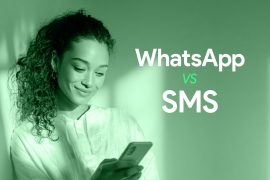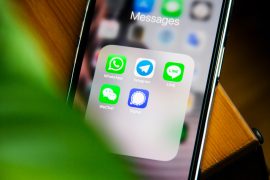Professional SMS offer an impressive open rate, with nearly 98% of messages opened within three minutes of receipt. However, an SMS can lose its effectiveness if sent at the wrong time or worse, trigger a negative reaction. Meanwhile, laws concerning the sending of professional SMS have been tightened with regulations aimed at protecting consumers from abuse. So, what is the right timing? At what precise moment will your recipients be most receptive to your messages? The answers are in this article.
Understanding your audience to define the right timing
It all starts with an in-depth understanding of your audience. Indeed, each customer segment has specific habits that influence their reaction to SMS.
Here are some examples of typical profiles:
- Professionals (B2B) are more receptive to SMS during office hours, generally between 10 a.m. and 5 p.m. A message sent early in the morning or late in the day might be ignored, as these times are often reserved for administrative tasks or closing activities.
- Consumers (B2C), or individuals, are more likely to read their SMS during their free time, in the evening or on Saturday. However, it is essential to respect your clients’ preferences and avoid sending SMS late at night.
Best days and times
Days and times play a crucial role in the performance of your campaigns:
- During the week (Monday to Friday), the best times to send SMS are generally late morning (between 10 a.m. and 12 p.m.) and afternoon (2 p.m.-4 p.m.). Recipients are more willing to read and interact with your messages during these slots.
- Over the weekend, Saturday morning is a good period for B2C campaigns, especially for promotions or reminders before events or special sales.
Certain key times of the day are more suitable depending on the type of message sent. If you need quick actions, such as appointment reminders or urgent notifications, sending an SMS in the morning is often the best option.
If your message concerns promotions on leisure activities, events, or various products, the early evening is more appropriate as people are more receptive to personal offers after their workday.
The impact of laws on sending times
With the EU recent regulations, it is crucial to respect legal restrictions on SMS sending times. In France, it is forbidden to send commercial SMS between 8 p.m. and 10 a.m., as well as on Sundays and public holidays. Violations of these rules may result in sanctions, ranging from fines to damage to the company’s reputation.
These regulations aim to prevent abuse and ensure that consumers are not bothered by unsolicited messages. It is also imperative to include a “STOP SMS” mention in each sending to allow recipients to easily unsubscribe from your lists if they wish.
Seasonality and special events
Besides days and times, seasonality and special events play a significant role in choosing the timing for sending an SMS:
- Sales periods or seasonal promotions (Christmas, Black Friday) are times when consumers are particularly receptive to offers by SMS.
- Local events can also impact the optimal time to send messages. For example, during a trade show, concerned individuals will be more attentive to communications related to this event.
- Sending an SMS just before a public holiday or vacation can be effective, especially if your message contains time-limited offers. For example, a promotion just before Christmas or New Year can increase your conversion chances.
Be careful, although some companies choose to send messages during holidays for seasonal offers, it is necessary to keep in mind that your audience’s attention may be reduced during these periods.
The importance of testing and analysis
It cannot be said enough, it is necessary to regularly test SMS sending time slots. A/B testing is essential to identify the best time depending on your audience. By comparing the performance of different time slots, you can adjust your strategies accordingly. Consider monitoring the open rate based on the days and times that generate the most engagement, as well as the conversion rate with the periods that lead to concrete actions (purchase, appointment booking, event, etc.).
Optimizing the customer experience
Finally, remember that sending professional SMS should always be part of a customer-centered strategy. In addition to complying with legislation and sending messages at the right time, the user experience is fundamental. Ensure that your messages are short, relevant, and provide real added value to the recipients. Impersonal or too frequent SMS can cause massive unsubscribes.
In summary, the best time to send a professional SMS depends on multiple factors. A successful campaign is based not only on relevant content but also on precise timing.







